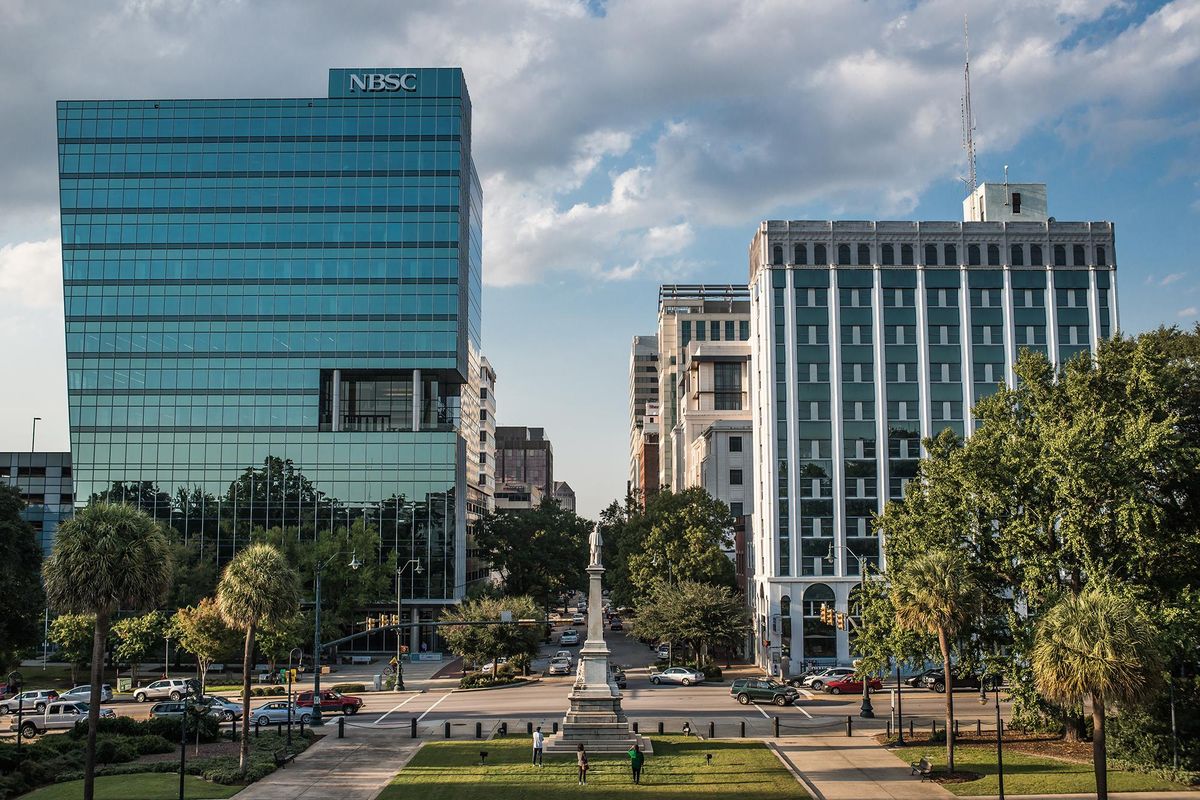Gonzaga and South Carolina battled to Final Four from towns different in size and geography but otherwise remarkably similar.

It’s time to size up the competition for Saturday’s basketball battle. Who are those Gamecocks from Columbia, South Carolina? What’s it really like over there on the other coast, and to the south? Perhaps there’s a regional dietary staple that gives them an advantage?
In the case of Columbia, Spokane and the city from the South – aside from climate – are remarkably similar.
“I’d say we are a large college town with intellectual diversity,” said Andrea Mensink, director of communications at Columbia’s Convention and Visitors Bureau.
The University of South Carolina is the biggest school in town with more than 27,000 students, but there are six other colleges, including Midlands Technical College and Benedict College, the fourth-largest historically black college in the country.
“People definitely root for South Carolina,” Mensink said.
Columbia is an insurance company hub, and several large companies like Aflac and Blue Cross Blue Shield have regional centers there.
“We have a lot of IT companies that spin off from that,” Mensink said.
Just outside Columbia is Fort Jackson Army Base, where more than 50 percent of the basic combat training for the U.S. Army takes place. It’s home to 3,500 active troops and 12,000 civilians.
“The base graduates candidates every Thursday – it’s a big part of our community,” Mensink said.
Columbia has a smaller population than Spokane, but it also has a river right through it. Actually, that would be three rivers.
“The Saluda River and the Broad River converge into the Congaree River right here,” Mensink said. “The Congaree flows down to Charleston and dumps into the ocean.”
When Mensink heard it was 45 degrees on Wednesday in Spokane, her polite response in perfect Southern dialect was: “Oh my! That is winter.” It was 82 in Columbia.
Like in many other college towns, there’s an emerging craft beer scene, but Columbia beers are primarily ales, made for drinking in the hot summer weather, Mensink said.
“I’ve been to the Pacific Northwest; our beer is definitely lighter,” she said.
And while there are coffee houses and cafes, Columbians turn somewhere else for a caffeine kick.
“We are definitely sweet-tea people,” Mensink said.
People are laid-back and friendly, Mensink said, but there’s one thing – other than basketball – that they take very seriously: Columbia is known for a mustard-based barbecue sauce.
“It’s mustard, it’s brown sugar, it’s pork and it’s tangy, sweet and golden,” Mensink said, adding that barbecue in the South is not just any barbecue.
“Everyone has a favorite barbecue spot,” Mensink said. “People have strong opinions about what they like and don’t like. It can get intense.”